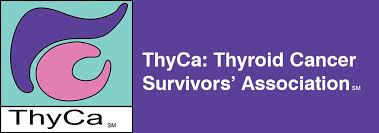Planning & Treatment
Care & Continuity
Care & Continuity
Learning you have been diagnosed with a serious medical condition can be stressful. You didn't ask to develop hyperthyroidism, hypothyroidism, Hashimoto's thyroiditis, thyroid eye disease, goiter, thyroid nodules, or any other thyroid condition. Fortunately, most of us can live well despite having a thyroid condition. You may have to adjust to taking medication, receiving treatment, or dealing with some symptoms. And you might have to see your health care professional a little more often than in the past. But even with all that, you can still make the most of your life while living with a thyroid condition by taking control of your outlook and making the smartest health choices.
No matter what kind of thyroid condition you have, you can optimize your health and your treatment outcomes by taking some very important steps. These steps aren't that difficult, but they can go a long way toward enhancing your thyroid health and your overall health.
Below are steps you can take to help you improve your odds of living a healthy, satisfying life.
 Diet & Exercise
Diet & Exercise
1. Incorporate physical activity into your lifestyle as you are able
Exercise won't necessarily help your thyroid directly, however, physical activity is one of the best things you can possibly do for your overall health. What's more, staying active could help alleviate some of the symptoms that may occur in conjunction with your thyroid condition. For example, exercise can help with weight management, mood regulation, healthy sleep, and bone health. It can boost energy, keep your bowels moving well, and contribute to muscle strength and balance. With the approval of your health care professional, aim for at least 30 minutes of exercise per day, most days of the week, and add in strength training and balance work if you can.
2. Eat right
As with exercise, eating a healthy diet may not necessarily improve your thyroid health, but like exercise, a balanced diet can go a long way toward boosting your overall health. When you eat healthy food, including fruits, vegetables, beans, legumes, nuts, seeds, lean meats, seafood, low-fat dairy foods, and whole grains, you give your entire body the nutrients it needs to function well. A nutritious, portion-controlled diet helps you reach and maintain a healthy weight, and high-fiber foods help keep your bowels working properly, which is especially important if you've been affected by thyroid-related constipation. As much as possible, choose whole foods rather than processed and refined foods, and limit sugar and alcohol. If you need help figuring out what and how much to eat, ask your health care professional to refer you to a registered dietitian.
3. Be as healthy as you can in other ways, too
Now is an excellent time to take care of other health concerns in addition to your thyroid health. If you have other chronic conditions — such as diabetes or high blood pressure, for example — work with your primary care provider or specialty care providers to keep those conditions under control. And be as healthy as you can in other ways, too, by quitting smoking, drinking only in moderation (or avoiding it completely if your health care professional has recommended abstinence), and seeking care for substance abuse. If you need referrals to specialty care providers, ask your health care professional.
 Medication & Supplements
Medication & Supplements
4. Understand your thyroid condition
You're in the best position to make smart choices about your health and your lifestyle when you fully understand your thyroid condition (as well as any other medical conditions you may have). Obviously, you don't have to know as much about your health as your health care professional, but it does serve you well to understand the basics of your condition. If you're uncertain about your condition or therapy, ask your health care professional to explain it in terms you can understand. If you turn to the internet for information, be sure to consult only with reliable medical sites — there's a lot of misinformation out there. In addition to this website, some excellent sources of thyroid health information include ThyroidAwareness.com, MedlinePlus, the National Institute of Diabetes and Digestive and Kidney Diseases, and the U.S. Department of Health and Human Services Office on Women's Health.
5. Take notes
When you talk with your health care professional about your thyroid health, consider bringing along a notepad and pen so you can jot down notes. You can also record the appointment on your smartphone (with your health care professional's permission) or bring along a friend or relative to take notes while you ask questions. Don't feel bad if you have trouble understanding your condition or treatment. Medical care can be quite complex, and it's better to ask for a second or third explanation than to be left in the dark about your care.
Here's a great tip: When you have questions for your health care professional, write them down before your appointment so you can cover all your queries efficiently. This allows you to have all your questions answered efficiently, in the time set aside for your appointment.
6. Follow your treatment plan exactly
You can get the best possible treatment outcome by following your thyroid care plan exactly. Take your medications as prescribed and be sure to follow your health care professional's instructions about when and how to take medication. (For example, if you take levothyroxine, taking it with food or certain other medications or supplements could interfere with its effectiveness.) Before you leave your health care professional's office, make sure you understand exactly what your treatment plan entails, and follow each step carefully. If questions arise after you leave your health care professional's office, call for clarification.
7. Take supplements only after consulting with your health care professional
Certain supplements, such as iron, calcium, or iodine, can interfere with your thyroid medication or your thyroid health. Talk with your health care professional before taking any supplements, including daily multivitamins. Biotin-containing supplements can result in false readings on laboratory tests. Be sure to mention to your health care professional if you are taking any kind of supplement and don’t take them for at least three days prior to any scheduled blood tests.
8. Tell your health care professional if you develop symptoms
Because your thyroid is involved in so many different body functions, from sleep to digestion to reproduction, changes in your thyroid health can trigger a wide range of symptoms. Be sure to tell your health care professional if you're experiencing any new or unusual symptoms because they could be a sign that your thyroid treatment needs adjustment. Don't assume that a symptom is no big deal or that it will go away on its own. Symptoms give your health care professional important information about your thyroid health and your overall health.
9. Keep all your medical appointments
Follow-up appointments are a crucial way for your health care professional to monitor and adjust your thyroid treatment and to check on your health. Be sure you understand how often you should receive follow-up care and testing. Schedule all your appointments in advance, and keep all of your appointments for office visits, blood work, and other tests. If you need to reschedule an appointment, ask for a replacement visit as soon as possible.
 Patient Support
Patient Support
10. Join a support group
Below is a list of support groups and how they can empower you throughout your journey.
- ThyCa: Thyroid Cancer Survivors’ Association: an all-volunteer nonprofit organization guided by a medical advisory council of renowned thyroid cancer specialists, offering support and information to thyroid cancer survivors and their families, and health care professionals worldwide. Learn more at https://www.thyca.org/
- Graves Disease & Thyroid Foundation: The Foundation is a 501(c)(3) tax-exempt, nonprofit international charitable organization. GDATF has helped thousands of patients better understand the symptoms and treatment programs for Graves' disease, providing help and hope for people with Graves' disease and other thyroid related disorders. Learn more at https://gdatf.org/
- The Light of Life Foundation: Dedicated to improving the quality of life for the thyroid cancer patient, through continuing education for the lay public and the medical community and promoting research and development to improve thyroid patient care. Learn more at https://lightoflifefoundation.org/
- Listen to Your Eyes: a sponsor-supported informational website for and about patients with thyroid eye disease. Learn more at https://www.thyroideyes.com/
- The TED Community Organization: is a 501 (c)(3) nonprofit comprised of patients, care partners, medical professionals, and individuals who advocate for those dealing with thyroid eye disease (TED). This community shares the experience of living with TED and provides education, support, and connection for everyone impacted by the condition. Learn more at https://tedcommunity.org/
11. Don't be embarrassed to seek mental health care
Having a thyroid condition or any other medical issue can take a toll on your mental health. It can contribute to feelings of anxiety, depression, or mood changes, whether or not you've experienced such feelings before. If you feel you could benefit from help from a therapist, social worker, psychologist, or psychiatrist, ask your health care professional for a referral. You may also enjoy joining a thyroid patient support group.
12. Remember that you're not alone
Thyroid disease is surprisingly common. For example, 5% of Americans over age 12 have hypothyroidism. Approximately 1% have hyperthyroidism. Some 44,000 cases of thyroid cancer were diagnosed in 2022. And about 10% of Americans will develop thyroid nodules at some point in their lives. Which all points to this: If you have thyroid disease, you're not alone. Knowing that may not ease your mind — or your symptoms — but it may help you feel less isolated. And keep this in mind as well: With so many people experiencing thyroid conditions, scientists are hard at work researching medications, treatments, and diagnostic tools to help thyroid patients.
13. And most importantly, cultivate positivity!
We started this section by acknowledging that nobody wants to be diagnosed with a thyroid disorder or any other kind of medical condition. But few of us make it through life without developing health problems. And so, when you receive an upsetting diagnosis, you have a choice: You can dwell on your misfortune, or you can do your best to have a positive attitude. Feeling positive isn't always easy, but it's a skill you can learn. Some ways to feel more positive are to practice gratitude (for example, spend time each day listing the things you're thankful for), practice mindfulness (by paying closer attention to the present moment rather than living in the past or anticipating the future), and surround yourself with positive, supportive people. Cultivating positivity can boost your resilience and help give you a better quality of life, even when health issues arise.
Thank You





 DOWNLOAD
DOWNLOAD




